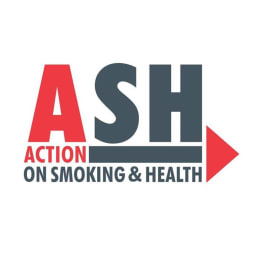
ASH's mission is to advocate for innovative legal and policy measures to end the global tobacco epidemic. ASH takes action against the tobacco epidemic on a global scale. The tobacco industry does not limit itself to a geographic area, and neither can we. Our goal is to see U.S. tobacco control through a global lens, and to see global tobacco control through a U.S. lens.
ASH has 4 main programs of work including:
A human rights approach to tobacco control
Smoking negatively impacts the right to life, right to health, right to education, children’s rights, women’s rights, and many others. For example, the tobacco industry often targets their marketing to specific populations based on gender, race, sexual identity and age. Some of these group’s smoke at much higher rates than the general population, and they are all protected by various international and regional human rights treaties and instruments.
Project Sunset to phase out the sale of commercial cigarettes
Project Sunset is an ASH-led global campaign to convince policy makers to phase out the sale of commercial combustible tobacco products. It is focused entirely on the sale, not individual possession, or use. The campaign includes efforts to address the social, political, and structural factors that sustain the smoking epidemic, in order to end it within a specified time period. Project Sunset reframes the conversation away from controlling death and disease to eliminating it.
Project Sunset is grounded in the understanding that the tobacco epidemic is caused by the actions of the tobacco industry. Nicotine is highly addictive, and cigarettes and other products have been engineered to be as addictive as possible. The majority of tobacco users became addicted as children, when consent was impossible. It is in part for this reason that the campaign is focused entirely on the tobacco industry and its products, not individual possession, or use. Governments have a human rights obligation when enacting endgame policies to ensure access to cessation resources and support for tobacco users.
Criminal Liability
Tobacco products kill more people than alcohol, AIDS, car accidents, illegal drugs, murders, and suicides combined. Left unchecked, tobacco use will kill 1 billion people this century. As one state Supreme Court recently noted, cigarettes likely constitute “the most dangerous product lawfully sold” to consumers. The lethal consequences of smoking have been known to tobacco corporations for decades, yet they continue these activities, with full knowledge that millions of deaths will be caused by the ordinary use of cigarettes.
The concept of tobacco executives and/or corporations being held criminally responsible for these deaths has been explored from a legal theory view for years and may be able to move from theory to practice. There are several options of how to pursue criminal liability including but not limited to, a U.S prosecutor bringing charges against tobacco corporations or their executives, a foreign country charging a tobacco executive with a crime identical or similar to manslaughter, and charges under international human rights mechanisms such as a violation of the right to life or right to health, among many others.
Strengthening Best Practices in Global Tobacco Control
The World Health Organization estimates that tobacco consumption kills approximately 7 million people per year, and according to the United Nations Development Program (UNDP), tobacco costs the world up to two percent of its yearly GDP. In the U.S., according to the Centers for Disease Control, tobacco causes over 480,000 deaths and costs more than $300 billion a year.
The world has responded to this threat by developing and adopting a number of global mechanisms to help reduce tobacco at the local level including a global tobacco treaty, the WHO Framework Convention on Tobacco Control (FCTC), which sets the global standard for best practices to reduce tobacco use such as tax and price measures, marketing and advertising bans, and protection from tobacco smoke; a U.N. General Assembly High-Level Meeting and Political Declaration on the Prevention and Control of Non-communicable Diseases (NCDs) that calls for an accelerated implementation of the FCTC; a NCD Global Action Plan and a monitoring framework to address NCDs that stresses implementation of the FCTC and calls for a 30% reduction in tobacco use; and the U.N. Sustainable Development Goals (SDGs) which include FCTC implementation as a target and a tobacco indicator that all countries will report on. ASH is proud to have been involved in the development of these mechanisms and calls on all jurisdictions around the world to accelerate implementation of the measures in the FCTC.
Become a supporter!
Donate or start a fundraiser
